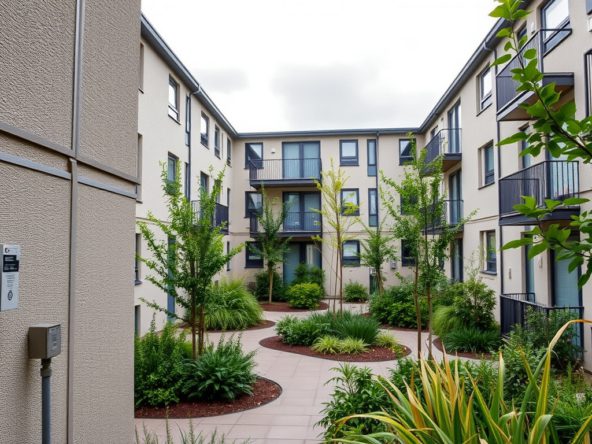In today’s world, rising energy costs are a concern for both tenants and landlords. Understanding how to effectively manage energy usage can lead to significant savings on energy bills for rentals, making it a vital topic for everyone involved in the rental market. Whether you are a tenant looking to reduce your monthly expenses or a landlord aiming to enhance your property’s appeal through energy efficiency, this article offers insightful strategies. We’ll cover essential information on energy bills, practical energy-saving tips for tenants, beneficial improvements for landlords, and the importance of communication and collaboration to foster a more energy-efficient living environment. Furthermore, we’ll explore government programs designed to assist in energy efficiency upgrades, underscoring the long-term benefits of cutting energy costs in rentals. Join us as we delve into how to slash energy bills for rentals and help create a more sustainable future.
Key Takeaways
- Tenants should understand how energy bills are assessed to identify potential savings.
- Simple energy-saving habits can significantly reduce consumption and costs for renters.
- Landlords can enhance property value by investing in energy-efficient upgrades.
- Effective communication between tenants and landlords is crucial for optimizing energy savings.
- Government incentives can help both parties invest in energy-efficient solutions, benefiting everyone in the long run.
Understanding Energy Bills: What Tenants and Landlords Need to Know
Understanding energy bills for rentals is crucial for both tenants and landlords to ensure transparency and avoid disputes. Energy bills can significantly impact the overall rental costs, and being well-informed can lead to better budgeting and energy efficiency practices. For tenants, it’s important to know what is included in their rent regarding energy expenses and whether they are responsible for setting up utilities in their names. Landlords should provide clarity on expected energy costs and can aid tenants in understanding their consumption by sharing past energy usage data. Both parties should familiarize themselves with energy-saving tips and local regulations regarding energy efficiency, as these can influence bills and ultimately enhance comfort within the property. As you navigate the world of rentals, explore hmoreporter.co.uk to find your next room in the UK, where you can settle into a space that fits your needs and lifestyle.
Top Energy-Saving Tips for Tenants
When living in a rental property, managing energy bills can be a challenge, especially when you’re trying to keep costs down while ensuring comfort. Here are some top energy-saving tips for tenants to help you make the most of your space without breaking the bank. First and foremost, consider utilizing energy-efficient lighting, such as LED bulbs, which consume significantly less energy than traditional bulbs. Additionally, be mindful of your heating and cooling habits; lowering the thermostat by just a couple of degrees in winter and using fans in summer can lead to substantial reductions in your energy bills for rentals. Insulating your windows with thermal curtains can also keep your space comfortable while reducing heating costs. Finally, unplug devices when they are not in use to avoid phantom energy usage, which can silently inflate your bills over time. By implementing these strategies, you not only cut costs but also contribute to a more sustainable living environment. For further tips on saving energy and finding your perfect rental, remember to explore hmoreporter.co.uk, where you’ll discover valuable resources for your next room in the UK.
‘The greatest weapon against stress is our ability to choose one thought over another.’ – William James
Energy Efficiency Improvements for Landlords
In today’s market, optimizing energy efficiency in rental properties is not only a financial imperative for landlords but also a necessity for attracting eco-conscious tenants. With rising energy bills for rentals, landlords can benefit significantly from implementing energy-efficient upgrades. Simple actions like installing energy-efficient appliances, improving insulation, and upgrading windows can lead to substantial reductions in energy consumption, ultimately resulting in lower utility bills. Furthermore, properties with better energy ratings often command higher rental rates and decreased vacancy periods. It’s essential for landlords to consider these improvements not just as an added expense but as a long-term investment that enhances property value and tenant satisfaction. For insights and resources on making your rental property more energy-efficient, visit hmoreporter.co.uk where you’ll find a variety of options to suit your needs.
The Importance of Communication Between Tenants and Landlords
Effective communication between tenants and landlords is crucial, especially when it comes to managing energy bills for rentals. This mutual understanding helps ensure that both parties are aware of their responsibilities and expectations, fostering a positive rental experience. Tenants should feel comfortable discussing any rising energy costs with their landlords, as these discussions can lead to solutions such as energy-efficient upgrades or adjustments in how utilities are managed. Conversely, landlords need to be transparent about what costs tenants can expect and provide clear guidelines on the allocation of energy bills for rentals. By keeping the lines of communication open, landlords can not only help tenants manage expenses but also promote a sustainable living environment. Remember, a well-informed tenant is likely to be a happy tenant, which ultimately benefits both parties in the long run. For those looking to understand more about managing their rental expenses, don’t hesitate to visit hmoreporter.co.uk to find your next room and gain insights into energy management.
Government Programs and Incentives for Energy Efficiency
The UK government has implemented various programs and incentives aimed at promoting energy efficiency, particularly for rental properties, to help tenants and landlords combat rising energy bills for rentals. Programs such as the Energy Company Obligation (ECO) provide funding for energy-saving improvements in eligible homes, ensuring that those renting can enjoy a more comfortable living environment without the hefty expense of high energy consumption. Additionally, the Green Homes Grant scheme, although temporarily closed, previously allowed landlords to apply for grants to improve energy efficiency, thereby lowering energy bills for rentals. By participating in these programs, landlords not only make their properties more attractive to potential tenants but also contribute to environmental sustainability. If you’re curious about how these initiatives could benefit you or if you’re looking to reduce your energy bills for rentals, exploring more resources on hmoreporter.co.uk can help guide you towards making an informed decision.






